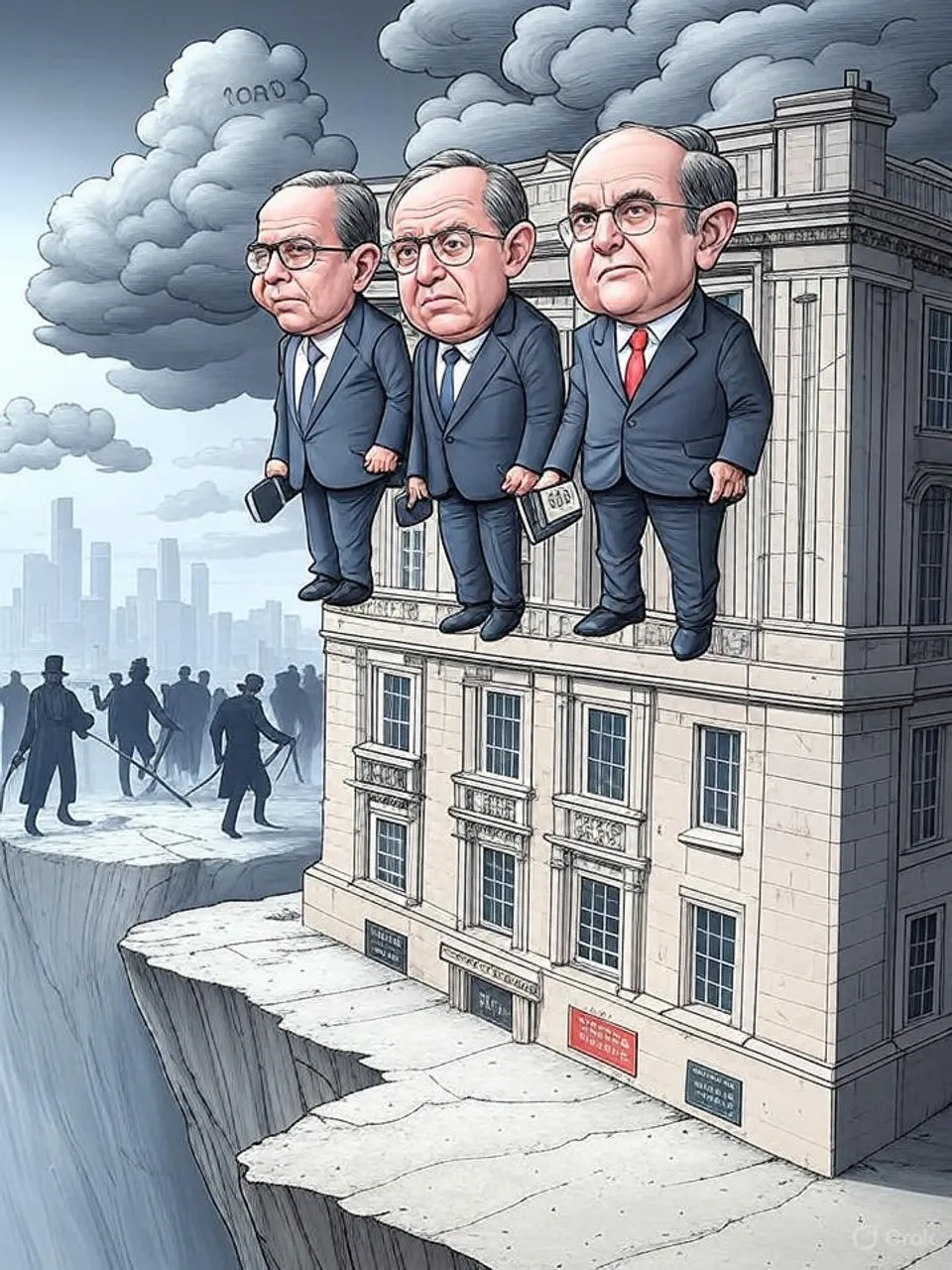£4.7 Billion Shortfall Drives London's Councils to the Edge

Half Face Bankruptcy by 2028 Amid Central Funding Cuts
London's boroughs confront a £4.7 billion deficit by 2028 due to underfunding and rising mandates, forcing cuts to essential services. This crisis, spanning parties, highlights systemic failures in UK local governance.
Commentary Based On
My London
Half of London councils 'could be bankrupt by 2028', shocking report warns
London’s 32 borough councils project a £4.7 billion collective deficit by 2028. This shortfall stems from statutory demands on social care and homelessness support that outstrip available funds. Central government funding cuts compound the crisis, leaving half the councils on the brink of bankruptcy.
The annual funding gap stands at £1 billion this year. Government bailouts already consume £400 million to prop up seven insolvent boroughs. Without intervention, this gap climbs to £1.5 billion next year under the proposed Fair Funding Review.
That review slashes London’s central grant by £700 million annually. It ignores the capital’s elevated needs, including higher deprivation levels and service delivery costs. The Institute for Fiscal Studies confirms London endures the widest mismatch between resources and requirements among UK regions.
Social care costs drive much of the pressure. Councils must fully fund these mandates by law, diverting money from discretionary services. Homelessness support adds further strain, with rising demand unmet by budgets.
Consequences hit essential amenities first. Libraries, children’s centres, and leisure facilities face closure or scaling back. Waste collection and road repairs, vital for daily life, also suffer reductions.
This pattern traces back over a decade of chronic underfunding. Successive governments, Labour and Conservative alike, trimmed local authority grants while expanding obligatory expenditures. The result: a system where local governments borrow emergently to survive, not invest.
Seven boroughs already require central rescues this year. Projections show more joining them by 2028 absent reform. London Councils, a cross-party body, labels the trajectory “impossible” to reverse without addressing needs-based allocation.
The Fair Funding Review exposes deeper flaws. It prioritizes formula tweaks over genuine equity, risking sharper cuts to London’s share. Officials acknowledge the imbalance but advance changes that widen it.
Ordinary Londoners bear the load. Reduced services erode community access to education, recreation, and maintenance. Economic growth stalls as boroughs divert funds from housing and job creation to bare survival.
This crisis recurs because accountability evades local leaders and central policymakers. Ministers promise sustainable footing yet deliver instability. No party faces electoral penalty for the shortfall, as blame diffuses across administrations.
Historically, UK local government operated with balanced central-local partnerships. Post-2010 austerity dismantled that equilibrium, embedding deficits. Today’s projections mark not anomaly but escalation of that decay.
Systemic capture benefits central treasury at local expense. Funds flow inward while mandates multiply outward. The £4.7 billion void reveals how power centralizes, leaving devolved bodies hollowed out.
London’s plight mirrors national trends. Public service deterioration accelerates under uniform pressures, regardless of governing party. Councils nationwide echo this insolvency risk, signaling broader institutional erosion.
Bankruptcy waves in the capital underscore UK’s fractured governance. Local authorities collapse not from mismanagement alone but from deliberate under-resourcing. Citizens inherit a state where vital services fray, exposing the hollow core of promised prosperity.
Commentary based on Half of London councils 'could be bankrupt by 2028', shocking report warns by Luke Donnelly on My London.